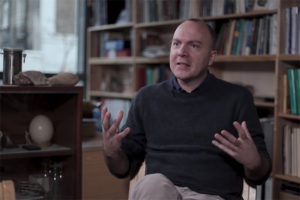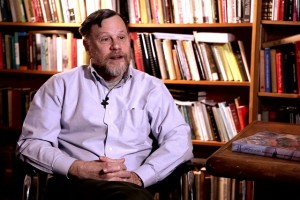Ape Tool Use Sheds Light on the Evolution of Human...
New research provides insights into the tool use difference between chimpanzees and bonobos which can help us ...
What is the nature of ethnic dynamics in Afghanistan? How do multiple ethnic groups may contribute to state-building? What does the proliferation of communication technologies mean for today’s Afghanistan? These and other questions are answered by Professor of Anthropology at Boston University Thomas Barfield.
One of the things that we are not familiar with or we make assumptions about is dynamics of how ethnicity works in Afghanistan is different than in other parts of the world. When the international community came into Afghanistan after 2001, they recently dealt with the problem of Yugoslavia. And what happens in Yugoslavia? A unitary multiethnic state, central power declines and every ethnic group wants its own country. And eventually they get their own countries. But one of the problems it turns out into is that every minority that says ‘we are oppressed’ and ‘we want our own country’ – as soon as there is a country, we find that there is another minority there, and they want their own country.
They found that the easiest way is to organize their allies on the basis of locality – “my kinsmen” , “my co-ethnics” , so they organized on the basis of ethnic groups. So you’d say, ‘Yeah, this militia is largely Tajik, this militia is largely Pashtun’. But if you ask, ‘Are you fighting in the name of the Tajiks, are you fighting in the name of the Pashtuns, or the Hazaras?’ – they were not. They were fighting in the name of their own local interests which meant that at any given time they got to choose to divide from their co-ethnics, and unite with their former enemies, or make a deal that had no basis on ethnicity. So one of the things that perhaps should not have surprised us if we now understand that Afghan ethnicity does not have this nationalist tinge to it, is how easy it was during the Bonne accords for them to create a national government at the end of 2001.
So we find a remarkably practical kind of politics. And we are looking for ethnic divisions that are going to divide people, make it impossible to come to a deal. But what we really don’t understand is that the Afghans consider a multiethnic state to be a natural state – not an imposed state.

New research provides insights into the tool use difference between chimpanzees and bonobos which can help us ...

Social anthropologist Martin Holbraad on revolutionary transformations, Afro-Cuban religion, and the way revol...

Historian Thomas Barfield on the Xiongnu empire, Genghis Khan, and the Mongolian tax policy